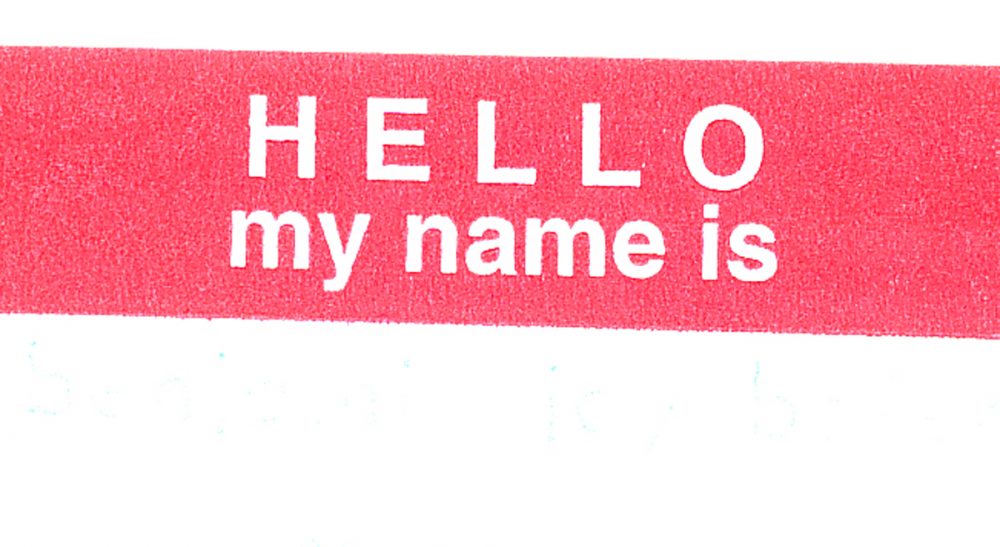Advertisement
What's In A Name? The Freighted Title 'Mrs.'

“Dear Mrs. Mills, I understand your position...”
I was engaged in an email exchange with an administrator at my child’s school, a male contemporary. He addressed me alternately as “Mrs. Mills,” using my husband’s last name, and “Mrs. Carleton,” using mine. I have been puzzling to understand why it made me bristle so. Was it the use of my husband’s name? The Mrs.? Both? I read my correspondent’s “Mrs.” as dismissive — condescending, even. If he was going for formality, why not use “Ms.,” instead?
I read my correspondent’s 'Mrs.' as dismissive -- condescending, even. If he was going for formality, why not use 'Ms.,' instead?
My kids’ friends call me “Mrs. Mills.” I don’t mind, because I know they are just being polite. Sometimes, friends call me that, too, and I give them a pass, because I know they’re just ribbing me. In a professional context, or in one where there might be an uneven balance of power, however, I don’t take it so lightly.
The full form of the prefix, Missus, was popularized in England in the 17th century as the feminine form of Mister. The Oxford English Dictionary still lists it as a term of “courtesy” for single adult women. But to my mind, Mrs. mainly announces a woman’s relationship status, and with that comes a whole set of preconceived notions that I would rather do without.
Since the early 20th century, some women have felt the same. In 1901, an anonymous Letter to the Editor of The Sunday Republican of Springfield, Mass., offered an alternative: the use of “Ms.” The letter writer suggested that Ms. serves as “a more comprehensive term, which does homage to the sex without expressing any views as to their domestic situation.” I couldn’t agree more.
The authors of “Practical Business Writing,” published in 1952, offered Ms. as an alternative that “saved debating” between Miss and Mrs. It was not until nearly two decades later, however, that the term Ms. was popularized, adopted by the women’s movement in 1971 as shorthand for the cause of feminism.
When I was a recently-engaged, recently-minted women’s college graduate, my future mother-in-law told me that the first thing she did after marrying in the 1960s was order custom stationery with her new husband's name printed across the top. She thus announced herself as “Mrs. My-Husband’s-First-And-Last-Names.”
“I wanted everyone to know I was married,” she said.
“That will never be me,” I told her.
I considered myself well versed in the politics of naming. Using Mrs. was outmoded, I thought, a signifier of being a husband’s property more than his partner. Some prefixes confer authority — “Dr.,” for example. Mrs., it seemed to me, did just the opposite.
But then a new century dawned, and powerful women reclaimed the title, albeit ironically. Madonna. Britney. Beyoncé. Women recognizable by a single name announced themselves as Mrs.: Mrs. Ritchie, Mrs. Federline and Mrs. Carter, respectively. Make no mistake, though, Beyoncé announced to her concert-goers, “I took some time to live my life. But don’t think I’m just his little wife.”
Using Mrs. was outmoded, I thought, a signifier of being a husband’s property more than his partner.
A female friend and college professor recalled being introduced to department visitors by an older male colleague as Miss. “I mean, Mrs.,” her colleague said, correcting himself. Everyone in the room had the same credentials and job title, but as the only woman, my friend was singled out for her marital status. She felt diminished in an instant. Yes, she was married. But that hardly summed her up, and she didn’t understand why it mattered at all in that context.
I complained to my husband about the email exchange with the school administrator. “It felt demeaning,” I said. “It seemed patronizing.” My husband didn’t understand.
“Well, what would you want him to call you?” he asked. I explained that using my own surname would be a start.
Finally, I offered an example.
“It would be like someone calling you Mr. Carleton,” I said.
“But that’s not really who I am,” he said.
Exactly.
Related:
